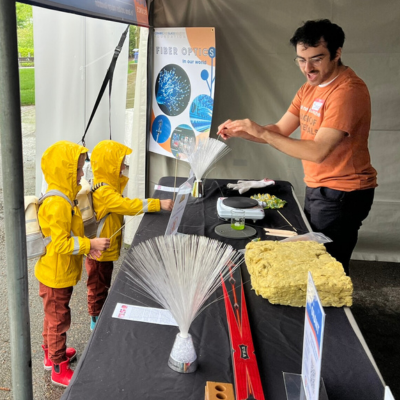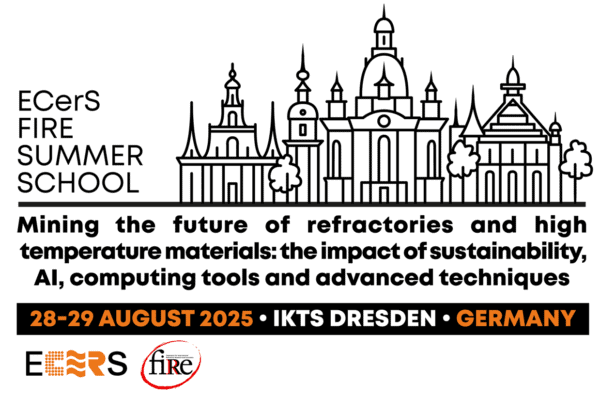Growing up, Fernanda Garcia was either expected to get married at a young age in Mexico, where she primarily grew up, or move back to the United States to earn a higher education. Knowing that Garcia is an American citizen, her mother then encouraged her to move back to the U.S. to pursue an education that she otherwise would not have likely received in Mexico.
Garcia is now a materials science and engineering student at California Polytechnic State University, San Luis Obispo (Cal Poly). She is also one of the 2023 American Ceramic Society (ACerS) and Ceramic and Glass Industry Foundation (CGIF) scholarship recipients administered by the Society of Hispanic Professional Engineers (SHPE).

At first, Garcia started out at a different college studying Spanish: something familiar to her. But after a professor encouraged her to pursue engineering, she discovered materials science at Cal Poly.
“I took the introduction to materials engineering, and I just liked the idea of working with something that can be involved in everything,” Garcia says. “You can be involved in the medical industry and construction, electronics, in everything. That was something that I always wanted; I didn’t want to be limited to what I could work on.”
While Garcia does not have a specific material she focuses on yet, she wants to narrow her research to biomaterials or energy-related applications. She recently conducted her senior project on batteries and polymers. She also knows that she wants to work somewhere where she can give back someday.
“If I’m working, creating something or designing something, I want this object or this thing to be available for everyone, not just for people who have money or are middle class,” she says. “I want this product to be available for everyone.”
Garcia has also volunteered at a number of student outreach camps, like a Girls in Engineering Camp, Baskin Girls in Engineering, The Mary Louise Academy (TMLA) Summerfest engineering camp in New York, and more. Working with young women and migrant students is something that helps motivate her to succeed in engineering.
“That is something that keeps me pushing, knowing that at the end of the day, there’s people who are there and looking up to me, and I want to make sure that they have that path, or at least considered that path,” she says.
As both a Latina and woman in engineering, Garcia knows how difficult it can be to navigate the STEM field with intersecting identities.
“For me personally, I know that we cannot just be good—you have to be great. You have to be on top of everything,” she says, referring to women in STEM.
Despite the constant pressure to exceed expectations, Garcia is also motivated by knowing how limited her options could have been had she not moved to the U.S. for a higher education.
“My dad was the person who told me, if you don’t get higher education, you’re working in the fields, picking berries, waking up at five in the morning, start working by six thirty,” Garcia says. “Sometimes you work more than 12 hours, just standing and picking berries, and it’s just so hard… I have worked in the fields, and I remember the first time I got home after working in the fields, I was just crying. My body couldn’t stand it.”
Since moving to the U.S., Garcia now has the opportunity to work in materials science and engineering and devote her life to solving problems in a variety of industries. She is grateful that ACerS, CGIF and SHPE were able to alleviate some of the financial stress that comes with being an underrepresented student.
“One of the things that I think every underrepresented student struggles with is money,” she says. “We’re working one job full time or two jobs and having this scholarship has given me the opportunity to just relax in that area and actually enjoy more of my classes, put more time into my classes and to my study areas.”
Garcia maintains that her success in STEM is not only her own, but that it is made up of everyone in her life that has supported her in some way.
“Support comes in so many different shapes. Something that I encourage a lot of women to do is to get into science and to try it out and see if that’s for them,” she says. “There are a lot of females who are inside, who feel lonely, and would love to have more females. We’re here to help. And for those who are already in STEM, I would say to just keep going. We’re almost there.”
Help CGIF inspire more underrepresented students like Fernanda by visiting ceramics.org/donate.
Categories
- Feature Stories
- Scholarships


